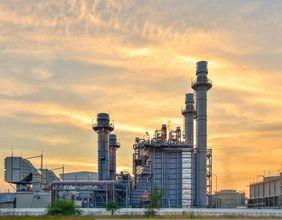Highlights
- Heavy transportation equipment companies remain focused on automation, electrification, and connected technology
- Sector continues to align with emission-reduction efforts through development of electric vehicles
- Federal Signal (NYSE:FSS) reported Q4 performance alongside shifting market demand patterns
Sector Overview: Heavy Transportation Equipment
The heavy transportation equipment sector encompasses manufacturers of vehicles and machinery used in construction, infrastructure development, and large-scale transport logistics. These companies play a crucial role in global economic operations, providing equipment used in roadwork, public safety, and industrial maintenance. Recent trends in the sector show an increased alignment with sustainable and technology-driven solutions, including electrified powertrains and automation features.
Technological integration remains central to ongoing development. Equipment producers have been embedding connected systems into their fleets, facilitating real-time data sharing between machines and operators. These updates assist in fleet tracking, fuel usage monitoring, and remote diagnostics. Simultaneously, emission standards are influencing product development, leading to a gradual shift toward electric and hybrid models in both public and private procurement sectors.
Federal Signal’s Role in the Sector
Federal Signal has maintained a visible presence in the sector through its portfolio of safety and environmental solutions. With a focus on manufacturing street sweepers, sewer cleaners, and public safety equipment, it aligns closely with municipalities and industrial clients. In the recent quarter, Federal Signal (NYSE:FSS) released earnings results that reflected consistent performance across core segments.
The company’s alignment with infrastructure-related demand has remained steady, supported by municipal purchasing cycles and government-funded infrastructure improvements. Its specialized vehicles are frequently used in city maintenance and emergency response, offering a stable base for recurring demand. These applications support the company’s presence across both environmental and public safety categories within the sector.
Automation and Connected Equipment Across Competitors
Peer companies in the sector continue to push forward with automation and data connectivity. Equipment lines now often feature systems that assist in navigation, load handling, and machine control. These technologies reduce labor intensity and improve operational efficiency. Larger manufacturers are incorporating telematics that allow centralized monitoring of entire fleets, contributing to improved maintenance scheduling and asset utilization.
Across the board, the integration of artificial intelligence and advanced sensor systems has expanded. These systems assist with obstacle detection, precision digging, and autonomous transport in controlled environments. Federal Signal and its peers are adapting to these shifts by introducing software and system-based enhancements that expand equipment utility and reliability.
Shifting Demand Patterns and Sector Headwinds
While technology and innovation drive forward momentum, demand across the sector remains sensitive to broader economic activity. Public infrastructure spending, industrial production levels, and private sector investment cycles all influence order volumes. Shifts in interest rates and access to credit can affect purchasing decisions, especially in construction-heavy submarkets.
The previous quarter reflected these dynamics. Equipment orders and delivery timelines remained aligned with scheduled municipal projects, while private construction demand showed variations based on regional development priorities. Federal Signal reported consistent orders across environmental solutions, supported by end-use applications tied to safety and regulatory compliance.
Emissions Standards and Electrification Trends
Environmental considerations are reshaping the heavy transportation equipment landscape. Regulatory standards related to emissions continue to drive demand for cleaner, more energy-efficient machines. Companies have responded by expanding their portfolios to include electric and hybrid equipment tailored to urban operations and noise-sensitive environments.
Electric sweeper models and low-emission vacuum trucks are being introduced to meet municipal procurement standards. Federal Signal and its sector counterparts are actively participating in pilot programs and demonstration projects intended to showcase the viability of such solutions. The move toward electrification aligns with ongoing global initiatives aimed at lowering carbon footprints in transportation and infrastructure-related activities.




